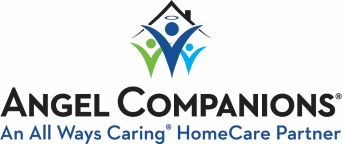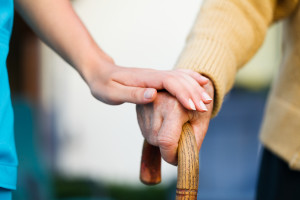May is stroke awareness month. Since stroke is the 4th leading cause of death, it is important for seniors to learn about causes, symptoms, treatment, and preventive measures. Approximately 800,000 people suffer a stroke each year. That is about one every 40 seconds with one person dying from strokes every 4 minutes. Only heart disease, cancer and chronic lower respiratory diseases are more deadly.
Strokes can be classified into three categories; Ischemic strokes, hemorrhagic stroke and transient Ischemic attacks. About 85% of strokes are Ischemic strokes that occur when the arteries to your brain become narrowed or blocked causing a severe reduction in blood flow. The most common Ischemic strokes can be divided into two classifications; Thrombotic strokes and Embolic strokes. A thrombotic stroke occurs when a blood clot forms in one of the arteries that supply blood to the brain. An embolic stroke occurs when a blood clot forms away from the brain commonly in the heart and moves through the bloodstream and lodges in narrower brain arteries.
A hemorrhagic stroke occurs when a blood vessel in the brain leaks or ruptures. The hemorrhaged blood puts pressure on brain cells and damages them. This type of a stroke can be caused by hypertension, trauma, blood thinning medications and aneurysms.
A transient Ischemic attack (TIA), also known as a mini-stroke, is short in duration, usually 5 minutes or less, with symptoms similar to those of a regular stroke. A TIA happens when a clot blocks blood flow to part of the brain for a short period of time. A TIA does not leave permanent damage because the blockage is temporary. Emergency care should be sought even if the symptoms clear up because it can mean that there is a partially blocked or narrowed artery leading to the brain, or that a clot source may exist in the heart. A TIA is a warning sign of a future stroke. It should be considered a medical emergency just like a major stroke.
The symptoms of a stroke are basically the same for men and women. They include sudden numbness or weakness in the face, arm or leg, especially on one side of the body. Confusion, trouble speaking, difficulty understanding speech, trouble seeing in one or both eyes, trouble walking, dizziness, loss of balance, lack of coordination or sudden headache with no known cause are other symptoms. Anyone with these symptoms should call 911 immediately.
A good acronym, to remember is the word “FAST”.
F ace: Ask the person to smile. Does the side of the face droop?
A rms: Ask the person to raise both arms. Does one arm drift downward?
S peech: Ask the person to repeat a simple phrase. Is the response slurred?
T ime: If you observe any of these signs call 911!
It is important that strokes are diagnosed as quickly as possible. The quicker the treatment can be provided, the lesser the damage to the brain. Some treatments for stroke only work if delivered within the first 3 hours after symptoms appear. Individuals should not drive to the hospital or even have someone else drive them. It’s better to call an ambulance so that medical personnel can begin potential life-saving treatment while on the way to the emergency room. At the hospital, brain scans are done to determine the type of stroke so that the appropriate treatment can be initiated Home Page. People who have had a stroke, are at a higher risk for another stroke. One of four stroke survivors has had another stroke within five years. That’s why it’s important to treat the underlying causes of stroke including heart disease, high blood pressure, arterial fribulation, high cholesterol, and diabetes. Some life style risk factors such as obesity, physical inactivity, and alcohol abuse may also contribute to a high risk of stroke. Individuals with a family history of stroke who are over the age of 55 can also be at risk.
Some of these factors are treatable, so the best prevention is to visit a physician on a regular basis and follow his recommendations to lower the risk of a stroke.


